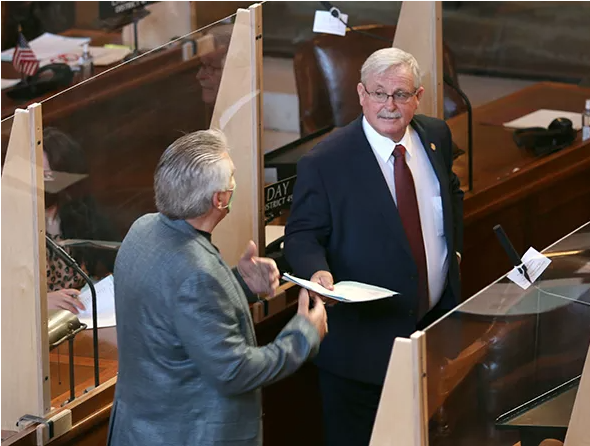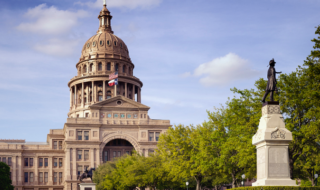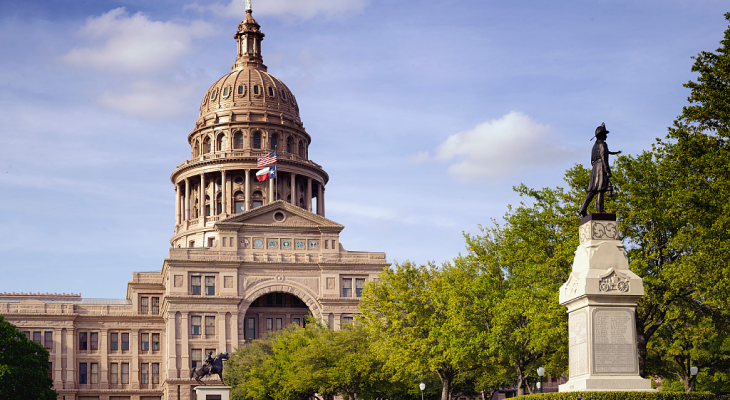January 22, 2021
Bill Introduction Deadline Passes—Hearings to Commence
State Director Bob Hallstrom reports from Lincoln on the legislative and political week ending January 22
The time for new bill introductions has expired with a total of 684 bills and 12 proposed constitutional amendments to be addressed by the Legislature this session. Committee hearings commence next Monday, with hearings to be conducted in the mornings and afternoons and floor debate delayed for the foreseeable future.
In light of the pandemic, capacity in committee hearing rooms is significantly limited and fewer individuals will be able to appear personally and present testimony before individual committees. As a result, the Legislature has expanded the opportunities for the public to submit written testimony to be reflected on the Committee Statement and made a part of the public record.
Fair Employment Act Hearing Coming Up
The Business and Labor Committee has scheduled a hearing on Monday, January 25, regarding the following bill of interest to NFIB:
- Legislative Bill 249 – Fair Employment Practices Act – Wage History: Sen. Patty Pansing Brooks (Lincoln) has introduced LB 249, which would make it an unlawful employment practice for an employer to:
- inquire about or seek from a job applicant or from the applicant’s current or former employer the wage rate history of the applicant, except to confirm any wage rate history voluntarily provided by the applicant as part of compensation negotiations
- require disclosure of a job applicant’s wage rate history or condition employment or consideration for an interview or employment on disclosure of wage rate history
- retaliate against a job applicant for failing to comply with any wage rate history inquiry
- rely on the wage rate history of a job applicant from any current or former employer of the applicant in determining the wages for such applicant at any stage in the employment process, including the negotiation or drafting of any employment contract, unless such applicant knowingly and willingly disclosed his or her wage rate history to the employer. (NFIB Position – Oppose)
Workers’ Compensation Bills of Interest
- Legislative Bill 407 – Workers’ Compensation – Mental Injuries/Mental Illness: Sen. Mike McDonnell (Omaha) has introduced legislation LB 407, which would allow county correctional officers in a high population county (more than 300,000 inhabitants) to recover benefits for workplace mental injuries and mental illnesses unaccompanied by physical injury.
- Legislative Bill 420 – Workers’ Compensation – Death or Disability of Firefighters: A measure introduced by Sen. Rich Pahls (Omaha), LB 420 would extend the rebuttable presumption that death or disability of an “emergency responder” (firefighter or police officer) who has served a total of five years as a member of a paid or volunteer fire department of any city or village resulting from specified diseases occurred from an accident or other cause while in the line of duty for purposes of the Nebraska Workers’ Compensation Act.
- Legislative Bill 441 – Workers’ Compensation – COVID-19 Rebuttable Presumption: Sen. Matt Hansen (Lincoln) has introduced LB 441, which would create a rebuttable presumption that any “essential worker” who otherwise qualifies for workers’ compensation and:
- is confirmed as COVID–19 positive on or after March 13, 2020, either by physician or by test
- has COVID–19 listed as the cause of death on the essential worker’s death certificate
- is quarantined at the direction of the employer due to suspected COVID–19 exposure or the display of any COVID–19 symptoms to have been suffered from an accident arising out of and in the course of his or her employment.
- The bill would prohibit a claim from being denied to an essential worker on the basis that the accident did not produce unexpected or unforeseen injury happening suddenly and violently and producing at the time objective symptoms of the injury.
Under the measure, an employer could rebut the presumption by affirmatively proving that the employee contracted COVID–19 outside of the workplace. COVID–19 cases would be exempted from being subject to the waiting period for payment of temporary total disability benefits and require compensation to begin from the earliest of the first date of quarantine, the date of positive testing, or the date of confirmed diagnosis of COVID–19 and continuing for the duration of the self–quarantine period that prevented the injured essential worker from returning to employment.
The measure would also prohibit such COVID–19 cases from increasing or adversely affecting an employer’s workers’ compensation insurance premium, experience rating, or modification. The bill would also exclude the notice of first injury requirement for any retroactive COVID–19 workers’ compensation claims, and only require the essential worker seeking retroactive workers’ compensation to notify his or her employer of the injury no later than two years after the effective date of the act.
- Legislative Bill 463 – Workers’ Compensation – Remote Participation in Evaluations: Sen. John Arch (La Vista) has introduced legislation (LB 463) that would authorize physical examinations of an employee by the employer’s physician to be attended by the employee’s physician either in person or remotely by electronic means.
- Legislative Bill 667 – Workers’ Compensation – Confidentiality of First Injury Reports: Introduced by Senator Steve Halloran (Hastings), LB 667 would require the Workers’ Compensation Court to withhold workers’ compensation first reports of injury from disclosure to the public for a period of 60 days, with certain designated exceptions.
Taxation Bills of Interest
- Legislative Bill 422 – Sales Tax on Services: Sen. Tom Briese (Albion) has introduced a measure (LB 442), which would, commencing October 1, 2022, reduce the state sales tax rate from 5.5 percent to 5 percent with adjustments in each of the next four calendar quarters to provide approximately the same amount of sales and use tax revenue for the state as would have been generated without the expansion of sales tax on services provided under the bill. The measure would apply the state sales tax to all services (all activities engaged in for other persons for a consideration and that involve predominantly the performance of a service as distinguished from selling or leasing tangible personal property, excluding services rendered by an employee to his or her employer) which shall be presumed taxable unless a specific sales tax exemption applies.
- Legislative Bill 622 – Property Tax Valuations: Sen. Curt Friesen (Henderson) has introduced legislation (LB 622) which would limit increases in total assessed value of all non-agricultural real property for any year to no more than 3 percent greater than the total assessed value of all such property in the prior year, excluding any new growth (increase in real property valuation due to improvements to real property as a result of new construction and additions to existing buildings and any other improvements to real property which increase the value of such property) occurring since the prior year’s assessment. The bill would also limit increases in total assessed value of all agricultural land and horticultural land for any year to no more than 3 percent greater than the total assessed value of all such property in the prior year, excluding any new growth occurring since the prior year’s assessment.
- Legislative Bill 625 – Income Tax Surcharge: Sen. Tony Vargas (Omaha) has introduced LB 625 which would impose a surtax, for taxable years beginning on or after January 1, 2022, on high–income individuals for the purpose of providing funds for early childhood education in Nebraska. The bill would impose a surtax of 4 percent of the amount of taxable income in excess of $1 million for individuals filing jointly or head of household and 4 percent of the amount of taxable income in excess of $500,000 for all other individuals.
- Legislative Bill 680 – Income Taxation: Sen. Lou Ann Linehan (Elkhorn) has introduced LB 680 which would reduce the tax rate on corporate income in excess of $100,000 from 7.81 percent to 6.84 percent beginning January 1, 2022.
- Legislative Resolution 22CA – Constitutional Amendment: Senator Linehan has also introduced a proposed constitutional amendment (LR 22CA) to limit local property tax revenue increases to 3 percent annually.
General Business Bills of Interest
- Legislative Bill 31 – Punitive Damages: Sen. Justin Wayne (Omaha) has introduced a measure (LB 31) that would authorize a court to award punitive damages when the defendant has displayed actual intent to cause harm or causes an injury through action taken in reckless disregard for the lives and safety of others. The bill would authorize the award of punitive damages to punish the defendant and provide retribution, to act as a deterrent to the defendant and others inclined to behave in a similar manner, and to demonstrate the court’s disapproval of such conduct. Any award of punitive damages would be remitted to the state treasurer for distribution to the common schools.
- Legislative Bill 213 – State Agencies Efficiency Review: Sen. Briese has introduced LB 213 which would require the Department of Administrative Services to contract for an efficiency review of state agencies to make the delivery of services more cost-effective, identify outdated delivery practices that can be eliminated, identify increased efficiencies in service delivery, identify potential new sources of funding for services other than taxation, and make government more accountable to residents of the state.
- Legislative Bill 480 – Minimum Wage: Sen. Terrell McKinney (Omaha) introduced a measure (LB 480) that would increase the minimum wage from $9 to $10 commencing January 1, 2022, and increasing by $1 each year thereafter until the minimum wage is established at $20 per hour on and after January 1, 2032, with the minimum wage to be adjusted annually thereafter an amount equal to the minimum wage from the previous calendar year increased by the percentage increase, if any, in the Consumer Price Index for all urban consumers.
Previous Reports and Related News Releases
- January 15—The Legislative Bill Mill Starts Turning

NFIB is a member-driven organization advocating on behalf of small and independent businesses nationwide.
Related Articles


















